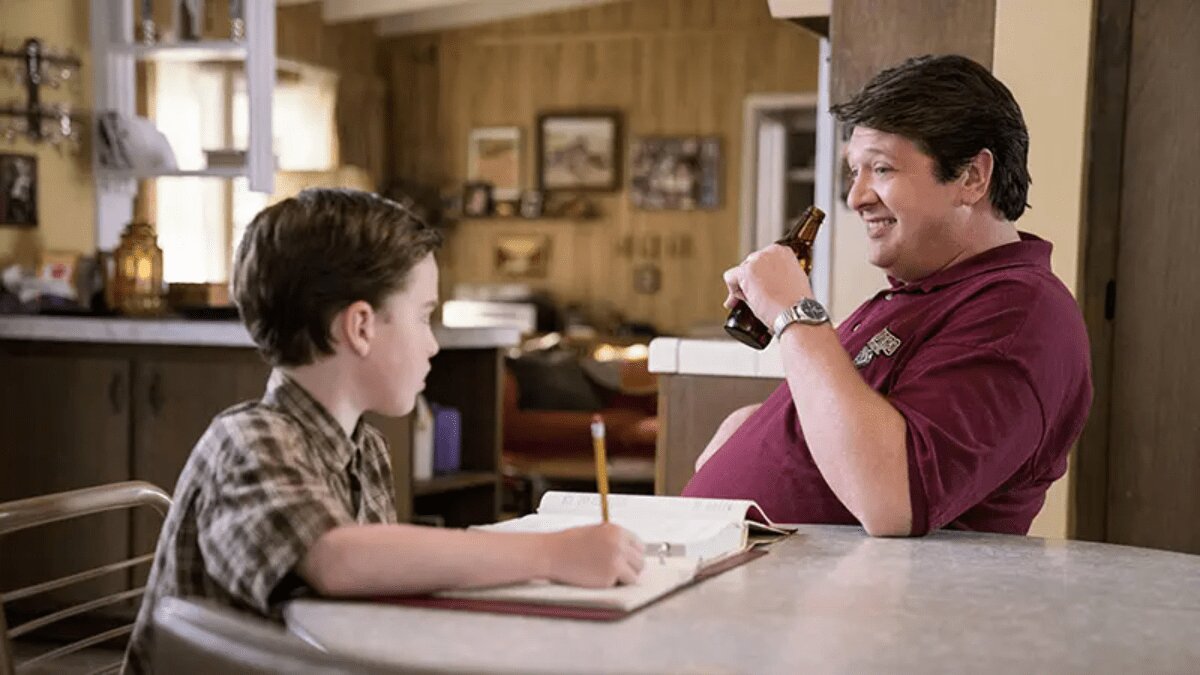After the airing of the penultimate episodes of Young Sheldon, the masterminds steering the series disclosed the truth regarding the fate of Lance Barber’s character, George Cooper.
Since its inception, this spin-off of the iconic Big Bang Theory has been steadily building towards this pivotal moment. When fans first embarked on this journey, they were shrouded in uncertainty, only assured that they would embark on a profound exploration of one of television’s most cherished oddballs.
The essence of the show lay in unraveling the intricacies of Jim Parsons’ Sheldon Cooper, delving deep into the origins of his quirks and eccentricities, one significant aspect being the loss of his father during his teenage years.
Did George Die in Young Sheldon Season 7?
After seven seasons of anticipation, the inevitable event finally unfolded in Season 7, Episode 12 of Young Sheldon, marking the heartbreaking departure of Lance Barber’s character, George Cooper.
The specter of George’s demise has loomed over Sheldon Cooper’s story arc since his introduction in The Big Bang Theory. With the inception of the prequel series, Young Sheldon, fans anticipated that George’s tragic end would be woven into the narrative fabric.
In a poignant turn of events within the hit family comedy, Season 7, Episode 12 witnessed the patriarch of the Cooper clan, portrayed by Barber, succumbing to a fatal heart attack off-screen. This pivotal moment unfolded just as Sheldon was preparing to embark on his journey to California, a familiar setting for fans of The Big Bang Theory.
The decision to portray George’s demise off-screen was a strategic one, as revealed by Young Sheldon’s executive producer, Steve Holland, in a conversation with Variety. They had always planned to address George’s death during this season, culminating in a funeral scene. However, the choice to refrain from depicting the death directly was to maintain the show’s overall tone of positivity and upliftment. Series creator Chuck Lorre advocated for focusing the finale on the family’s gradual healing process, rather than dwelling on their grief.
Holland explained that they aimed to subvert expectations by placing the pivotal moment in the penultimate episode, catching viewers off guard while still delivering the long-awaited narrative development. The final moments featuring George alive were deliberately crafted to reflect the mundane reality of everyday life, emphasizing the notion that significant moments often pass unnoticed until viewed through the lens of hindsight.
In an interview with TV Insider, Lance Barber echoed the sentiment, emphasizing the relatability and authenticity of portraying life’s unexpected twists and turns. The deliberate lack of fanfare surrounding George’s departure served to underscore the show’s commitment to portraying genuine human experiences.
Holland further emphasized the power of simplicity in portraying George’s final moments, underscoring the idea that profound significance is often found in the ordinary. By deliberately stripping away any semblance of grandeur, the scene resonated with the audience on a deeply emotional level, highlighting the fragility and unpredictability of life.


